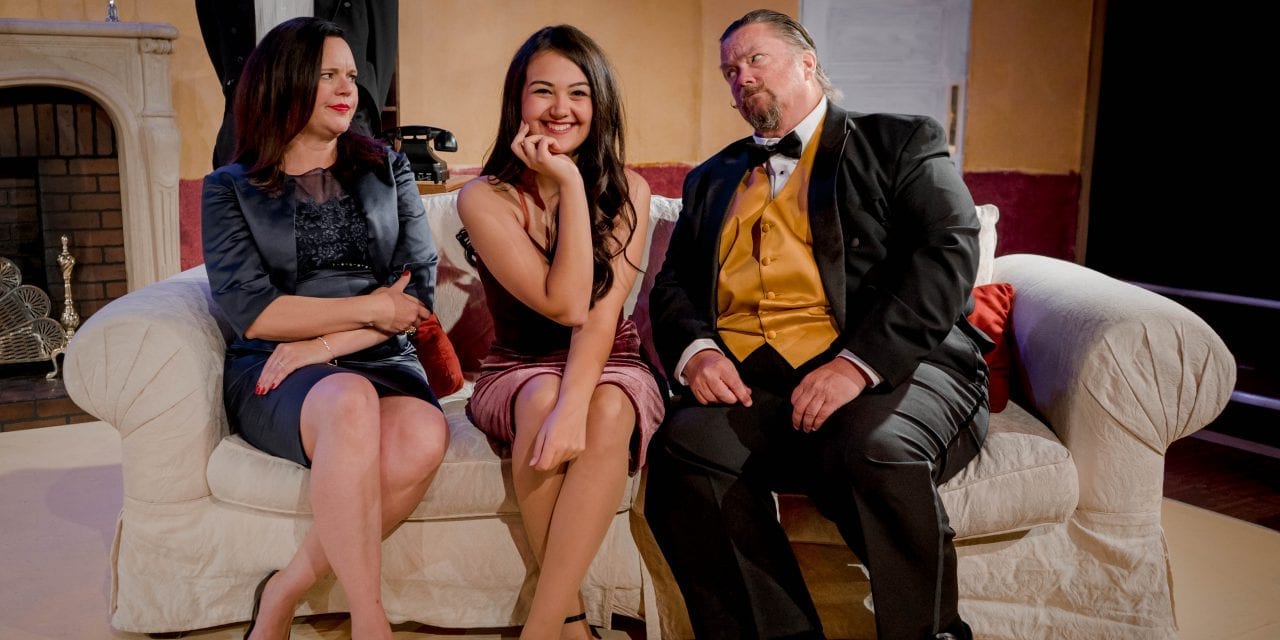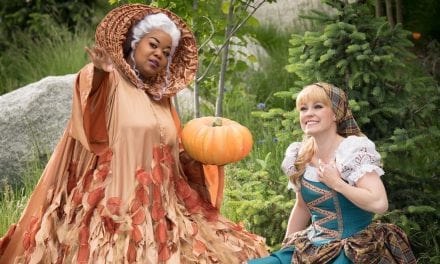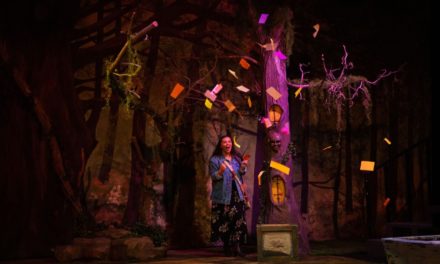PROVO — Ron Bernas’s A Little Murder Never Hurt Anybody under the direction of Jarom Brown at Covey Center for the Arts is billed as “A hilarious match of wits and the witless.” Unfortunately, it only succeeds as a mild amusement.

Show closes October 12, 2019.
The play is, in the words of dramaturg Hanna Gunson-McComb, “a spoof of classic 30s screwball comedy.” The drama begins with an unbelievable premise: millionaire Matthew Perry (played by Brett Davis) proclaims that his New Year’s resolution is to kill his wife, Julia, in order that he might have more fun. (A divorce would cause him to lose half his fortune.). Perry carefully explains his desire to his wife (played by Annette Miner), who promptly makes her own resolution not to be killed. This sets off a series of plotted murder attempts that seemingly only succeed in killing off unsuspecting bystanders. To add to the complication of the plot, the only Perry daughter, Bunny (played by Livia Offen), becomes engaged to aspiring young lawyer, Donald Baxter (played by David van Frankenhuijsen). Donald mistakenly thinks that it is Julia Perry trying to kill off her husband so that she may carry out an affair with the Buttram, the Butler (played by Robert Bahr). Donald enlists the help of Plotnik (played by Cody Eckman), the detective that has been unsuccessfully attempting to discover the mystery behind the numerous fatalities on the estate. Taking place over the course of the year and numerous dinner parties with shrinking guest lists, the audience watches as the stories of the murders begin to unravel and bonds are formed in unlikely places.

David van Frankenhuijsen as Donald and Livia Offen as Bunny.
The plot of A Little Murder Never Hurt Anybody is outrageous enough to place slapstick in all of the right places, but, unfortunately, this production falls flat. There are moments of comedy and ensuing laughter, but at other points, the timing is off, and the energy is lacking. In addition, there were moments in the play when it seemed that the actors had forgotten or misspoken their lines, bringing the production to a standstill that carried over well into the rest of the scene.
Memorization issues aside, none of the actors were particularly bad, they just didn’t connect as an ensemble on stage, a fault that may be attributed to Brown. I also questioned some of Brown’s choices in staging. For example, the play is presented as realism, with the fourth wall removed, until one scene very late in the play when an actor breaks through the fourth wall to sit in the audience. This moment was baffling, as there seemed to be no reason for it whatsoever, and it completely disrupted the flow of the onstage action. In addition, the Brinton Black Box theatre is a very small space, and the action of the play often came very close to the spectators. At one point an actor’s hind end was uncomfortably near the faces of two audience members, a possibility that should have been taken into account in rehearsal and addressed.
Despite the faults in the performance, the production values of A Little Murder Never Hurt Anybody were adequate. Sound design by Robert Seely and lighting and set design by Pam Cluff were appropriate to the period drama, as was the costume design by Rachel Bennett. There was only one stage element that seemed to be out of place. Above the fireplace mantle was a framed portrait of the Perry family with their butler Buttram partially visible in the background. The portrait was clearly a promotional photograph for the play. Perhaps this placement was meant to hint at some metatheatricality, but it simply seemed out of place and distracting.
When done well, community theatre is capable of creating the same sense of fulfillment as professional drama. When done poorly, it is the fodder of its own spoofs. Covey Center’s A Little Murder never Hurt Anybody falls in between the two extremes, but no one wants to pay for comedy that is “just okay.”





